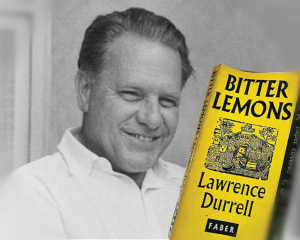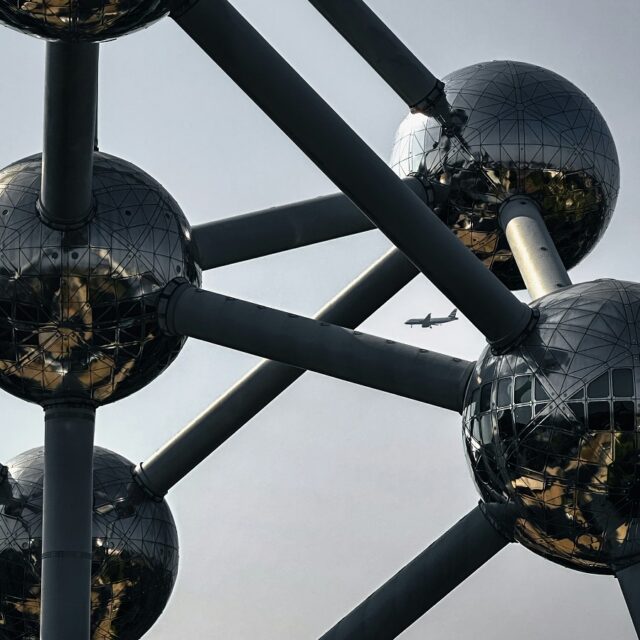Cyprus emerged as the number one issue on the international political arena recently, writes Leyla Tavsonoglu.
The Greek Cypriot Government, enjoying the full benefits of being the sole EU member of the island, disregarding the Turkish Cypriot side, in partnership with Israel and Egypt, continues drilling for natural gas and oil on the Cypriot continental shelf.
Ankara, as one of the guarantor powers of the island, the other two being the UK and Greece, fully rejects Greek Cyprus’s manoeuvres as violations of international law. On the other hand, Turkish and Greek Cypriot presidents, Mustafa Akinci and Nicos Anastasiades seemingly continue to seek a just and acceptable solution for the island through intercommunal talks.
As the tug-of-war between the concerned powers of the island is going on I remember a book which I read many years ago. “Bitter Lemons of Cyprus” was written by the famous British author and diplomat Lawrence Durrell in the early 1950’s and was first published in 1957. It is an account of Durrell’s years on the island as a teacher and Foreign Office press adviser to the British Colonial Governor of Cyprus.
The 1950s was a period of rising tension and violence on the island. Armed groups, meaning the Greek Cypriot EOKA emerged, proclaiming there would be no peace until British colonial rule was overthrown and Cyprus was united with mainland Greece. Durrell soon became disgusted with Greek militants, viewing them not as freedom fighters but as “whiskered lunatics” intoxicated by “the heady rhetoric of local demagogues and priests” and the “envenomed shrillness” of Athens radio.

He describes the Bellapais village he was renting a house in as “embedded so deeply in the mediaeval compost of religious hatreds. The villagers floundered in the muddy stream of undifferentiated hate like drowning men.” In the end Durrell had enough of boiling hatreds among the Greek, Turkish and British communities and left the island.
The most interesting part of the book for me is Durrell’s encounter with a British woman called Marie. Marie’s family name is never mentioned in Bitter Lemons of Cyprus. Marie is an adventurous soul. Enjoying life in Kyrenia and Bellapais, then disappearing for months. It turns out she has been on long trips to India.
Marie wants to buy land in Kyrenia, She finds a lovely place on the top of a hill, east of Kyrenia, overlooking the blue seas of the Mediterranean. Durrell helps her find builders. A small house starts to evolve on the land. Marie names it “Villa Fortuna”. Meanwhile the reader has the feeling that a romantic relationship is developing between the two. But one day Marie tells Durrell she decided to get married to an Italian aristocrat. She then leaves the island for good.
Years later I was curious to learn Marie’s identity. A quick search and voilà: Marie is Marie Millington-Drake, daughter of British aristocrat and diplomat Sir Eugene Millington-Drake and sister of famous artist Teddy Millington-Drake. Sir Eugene was renowned with building his wealth through arms dealing. Archives say daughter Marie used to smuggle these British arms to the island to support the Greek militant organization EOKA. According to these archives Marie bought the hilltop land to bring the arms to the island through a cove which the hill overlooked. She was never caught. And later on she married her Italian duke, Gaetano Paterno Castello, and led a quiet life until her death in 1973.
After the turbulence of the 1950s and the proclamation of the independent Cyprus Republic in 1960 the Turkish Government was going to set up its Embassy in Nicosia. Ankara also looked for a summer place for Turkish Ambassadors. Through sheer coincidence Marie Millington-Drake had decided to put Villa Fortuna on the market in the early 1960’s. Ankara bought the place which still hosts Turkish ambassadors during their summer vacations.
By a quirk of Fate the name of the house is changed to Villa Firtina (The Villa of the Storms). I don’t know if it was intuition or not by the Turkish Government to name the house the Villa of the Storms. Guess what!
The Author, Leyla Tavsanoglu, is the Diplomatic Editor for EU Political report.




